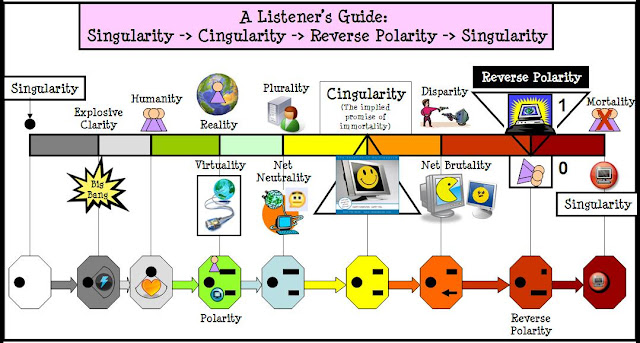Wide World of Content
The ease of content availability and accessibility in today's world is simply astonishing. With the advent of phones that are smarter than necessary (and put to shame the communicators used in the original Star Trek series which, interestingly enough, might have been the seed for the cellphone concept), have data streams tethered to the ether 24x7, and have processing power greater than what a typical home computer had 10 years back, information is not only literally at our fingertips but is also parallelly processable, viewable in streaming format, and manipulatable in-place. The web of information cast over the whole wide world is so addictive that we start hyperventilating when our broadband connection suffers an outage. Nowadays a power outage is not that unbearable for its own sake, but for the fact that it renders our routers impassive and stops the steady and comforting stream of content.
'Like' Minded
The most interesting recent phenomenon in content generation and sharing is social networks of course, and by that I mean Facebook - it's the Microsoft Windows of the social network world. Facebook appears to have fulfilled the inherent and constant need in human beings to be 'Like'd (Facebook is quite 'Like' wise - what a simple yet powerful concept - you get to make someone's day via one mouse-click) and be heard, even if it entails the oh-so-interesting minutiae of nail-clipping or rearranging furniture. What Facebook provides is a distracted audience that is waiting to be informed and entertained. It tests our capability to garner interest, acknowledgement and best of all, 'healthy' debate regarding what we have to say - the number of 'Like's increases our self-esteem and the appearance of the number '1' (higher the better) on the 'notifications' globe signals the fulfillment of our destiny.
'Weight' for Information
An article last year in the Wired magazine talked about how social networks are going to bypass the standard web in traffic because of the fact that information coming from a person we know (or pretend to know, or knew eons back and haven't even interacted with once after adding as friend) carries more weight. Not sure of the reasons, but Facebook already bypassed Google in terms of web traffic. The fact that social networks rely on the web to deliver the information sourced from our 'friend' on Facebook does not appear to get acknowledged. What it basically means is that a social network without the underlying web infrastructure would be feeble at best and non-existent at worst because most of what we share with our friends is web content.
The 'Glocal' Concept
What I struggle with is the absence of localized content served through standard content dissemination channels and seamlessly blended in the navigation menu to fulfill the 'Glocal' concept. For example, we still do not have active content blaring at us the high energy consumption by our home appliances, the awareness of which would translate into valuable savings (unfortunately, 'savings' typically involve spending first in this world - you even get the opportunity to purchase a 'savings' coupon booklet - these are savings you cannot deposit in a bank). We pretend to be or are genuinely shocked every month by our energy bill, even though the cycle repeats every year. With due respect to the worldwide scarcity of potable water despite the fact that water bills are not high in the US, an active water consumption display would really help. Combining the energy and water consumption display might help cut down on the long, hot water showers. We do not have easy and direct access to our medical information (it needs to be secure, I understand that). We get a lot of local store coupons via mail, but never have it handy when there comes the time to use them - hope that content becomes readily accessible via an app - most phones have location-tracking capability anyway.
You Don't Mess with the Lohan
Finally, while content provides quick decision-making capability nowadays, it does appear that a lot of it is generated to create a want instead of fulfilling a need. How much more information on Lindsay Lohan and the Kardashians do we really need? The web appears to be quickly becoming a tabloid as far as entertainment reporting is concerned. Journalism has been replaced by sensationalism. Also, content-capturing devices allow us to record every minute of the day - what is not accounted for is the time or the inclination to play back that recorded content - if a map were to capture every square inch on this globe, it would be as large as the globe itself and utterly useless. Content comes at us fast and furious, and the struggle is keeping up with it - we have all become islands already, poring over our mobile convergence devices ('cellphone' does not cut it anymore) at home, in a public place, and even trying to sneak a peek at work in order to catch up on our to-do list comprising of a YouTube link posted by a friend on Facebook a week ago.
So...
So are we content with content yet? Or do we keep wanting more and more till it reaches the point where it owns us (maybe it already does) and we have to say:
----------------------------------------------------------------------------------------
6,894,797,952 (and counting)
people already like this, but please do click on the button below to be the first of my friends to like this:





